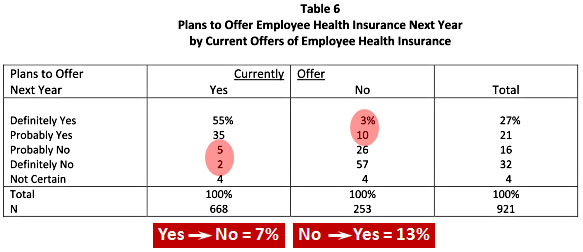
<a href="http://www.shutterstock.com/pic-206142217/stock-vector-businessman-marionette-on-ropes-controlled-hand-vector-illustration.html?src=DTB8HJEewabsBH9Pdbzhjg-1-29">Mangsaab</a>/Shutterstock
Verizon Communications is the largest wireless provider in the United States, with 178,000 employees and $91.7 billion in sales last year, and yet it somehow managed to wrangle more than $107 million in federal “small-business contracts” last year through the US Small Business Administration.
Verizon isn’t the only gargantuan company the SBA deems eligible for assistance. In 2015, according to a recent lawsuit by an advocacy group for actual small businesses, the SBA counted contracts with 150 other Fortune 500 companies in its fulfillment of the federal government’s small-business contracting obligations.
“The Small Business Administration has become perverted,” says Lloyd Chapman, founder of the American Small Business League, which filed the suit in May. “At some point their mission changed to helping the government and contractors circumvent the Small Business Act.”
Congress created the SBA in 1953 with its passage of the Small Business Act, legislation designed to “maintain and strengthen the overall economy” by giving the small fry of the business world a leg up. The definition of “small” varies by industry, from a maximum of 100 to 1,500 employees and revenues of $750,000 to $38.5 million. (Chapman, noting that the average American business has just 17 employees, says these caps are too high.) In any case, federal research shows that such businesses are key to supporting the middle class: Although they employ less than half of all private sector workers, they create 64 percent of net new jobs. They also tend to buck the offshoring trend and are seen as a counterbalance to income inequality because they spread wealth around to millions of entrepreneurs. “The Small Business Act is the largest economic stimulus program for the middle class in US history,” Chapman proclaims. “And we are its protectors.”
Indeed, his and other watchdog groups have repeatedly accused the SBA of failing to fulfill its original mission. Under the law, the agency is required to ensure that at least 23 percent of federal contract money goes to small businesses. The actual figure, Chapman calculates, is about 4 percent, a difference of hundreds of billions of dollars each year.
“The United States government is anti-small-business,” says Chapman, whose scrappy three-person outfit in Petaluma, California, has filed dozens of lawsuits against the SBA and other federal agencies over the past quarter-century, often compelling the agency to reveal more information about how it handles contracts. The latest suit seeks an injunction that would require the SBA to stop allegedly cooking its books when it reports on federal contracting.
SBA spokeswoman Tiffani Clements would not comment directly on the lawsuit, but argued in an email that actual misreporting of small-business contracts is rare, and not the fault of SBA employees. Corporate behemoths that acquire smaller firms may simply ignore a requirement to recertify the size of the firms they acquire (the Verizon contracts were awarded to a subsidiary, Terremark Federal Group, that Verizon purchased in 2011). Additionally, Clements said, “There is always the possibility of human error” when the government’s contracting officers record a company’s data. (Chapman counters that if human errors were to blame, then the small firms would get misclassified as large ones, too—and nobody in his group has ever seen that happen.)
Chapman is hardly alone in his criticisms. Every year since 2005, the SBA’s Office of the Inspector General has ranked “small business contracting” as the agency’s most serious management challenge. “As an advocate for small business, SBA should strive to ensure that only eligible small firms obtain and perform small business awards,” the OIG wrote in an October report citing “widespread misreporting…since many contract awards that were reported as having gone to small firms have actually been substantially performed by larger companies.” The report blamed reporting errors mainly on contracting officers and poor oversight of how companies calculate their size.
Perhaps the most significant way the SBA fudges the small-business contracting numbers is as follows: In arriving at its 23 percent figure, the agency does not include any contracts for work performed outside the United States or in service of dozens of different federal agencies, including the Postal Service, the federal courts, the National Security Agency, and the CIA. It also excludes a large amount of contract spending related to Medicare, Medicaid, and veterans’ health. Finally, it doesn’t count contracts commissioned by state and local agencies using federal grant money.
The SBA argues that these exclusions are legal because the small business requirements apply only to “contracts” (not grants) at “federal agencies”—which the SBA defines as excluding “non-executive branch federal government entities” such as the court system. It also excludes contracts that don’t appear in the Federal Procurement Data System and those that may be deemed sensitive for “national security reasons.”
In fact, the SBA’s exclusions cover the majority of federal discretionary spending, according to an analysis by law professor Charles Tiefer, an expert on government contracts at the University of Baltimore. Tiefer calculates that, in 2011, the SBA excluded $677 billion worth of federal grants and contracts from $1.1 trillion in overall spending, which allowed the agency to claim that 22 percent of the contracting dollars went to small businesses that year.
“The SBA has a lot of trouble getting agencies like the Department of Defense to give awards to small businesses instead of the Lockheeds and the Halliburtons,” Tiefer explains, “so it wants formulas that establish the lowest possible total to lighten up its work for how much small-business contracting it has to round up.”
Although genuflecting to the shrine of small business has become standard practice for politicians—President Barack Obama said in 2012 that small businesses “are the backbone of our economy and the cornerstones of our nation’s promise”—the SBA’s flaws are largely ignored by the leaders of both parties. The watchdog group Public Citizen, which examined the issue last year, blames the inaction on the revolving door between government and major contractors, and on prodigious lobbying and political donations from Fortune 500 companies.
More surprisingly, the issue has received scant attention from the nation’s best-known “small business” groups. The National Federation of Independent Business, which claims 325,000 members and chapters in 50 states, hasn’t touched it. Chapman believes the NFIB is actually a shill operation for large corporations. In 2011, it received a $3.7 million donation from Karl Rove’s Crossroads GPS, the dark-money arm of his conservative political fundraising juggernaut.
In Tiefer’s view, the outrage of Chapman’s group is spot on. Redirecting hundreds of billions of dollars to small businesses each year would do a lot to address income inequality, he told me: “The difference is much smaller between the salaries of the people at the top of a small business and the worker bees…By and large, the people at the top of the big contractors like Lockheed are in the 1 percent, whereas the people in the top of small businesses are not.”
Correction: An earlier version of this story incorrectly described an SBA rule relating to small business acquisition









